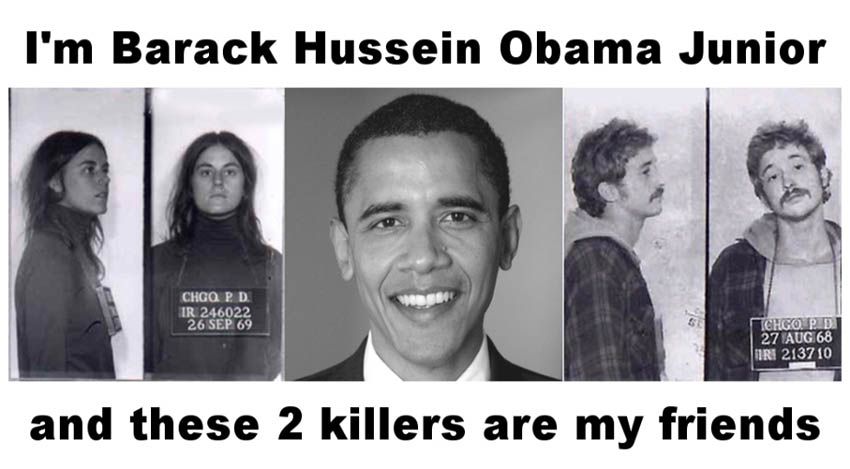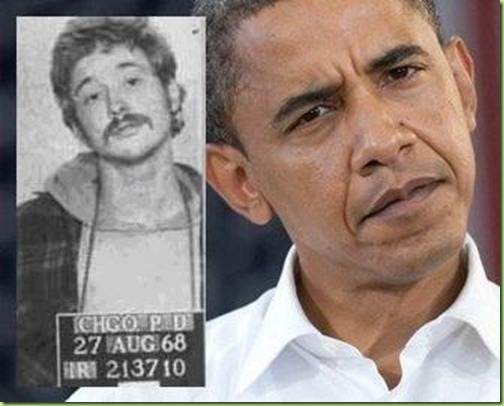
By Jack Cashill
AMERICAN THINKER
With his capture Friday evening in Boston, terrorist bomber Dzhokhar Tsarnaev would seem to have abandoned all hope of ever amounting to anything useful. He may, however, be selling his adopted country short. In America, at least in certain quarters thereof, our fellow citizens have a history of rehabilitating terrorists and restoring them to places of honor.
President Barack Obama knows something about this. It was no more than fifteen years after Bill Ayers walked away -- "Guilty as hell. Free as a bird." -- from his 1970's career as an underground bomber that he became Obama's mentor, political adviser, and literary ghost. Ayers went on to become a distinguished professor of education at the University of Illinois and a much-sought after speaker at educational conferences around the country. Chin up, Dzhokhar!
During the 2008 election cycle, of course, the media did not want to know about any of this. Ben Smith, then of Politico, had reported as fact Obama adviser David Axelrod's claim that the Obama-Ayers relationship went no deeper than the happenstance that their children "attend the same school." True, upon learning that Obama's oldest child was born 18 years after Ayers' youngest, Smith added a comically circuitous "update," but the media shied from chasing the story or even chiding Axelrod.
At the time, however, ABC's George Stephanopoulos, as a former Clinton aide, had his own agenda. During an April 2008 presidential debate, he asked Obama about Ayers. "He was part of the Weather Underground in the 1970s," Stephanopoulos reminded the audience. "They bombed the Pentagon, the Capitol, and other buildings. He's never apologized for that." He then asked Obama, "Can you explain that relationship for the voters and explain to Democrats why it won't be a problem?"
"I know not the man," Obama replied -- no, excuse me, that was Peter on the subject of Jesus. On the subject of Ayers, Obama proved only slightly more straightforward. "This is a guy who lives in my neighborhood," said Obama for the ages. "He's not somebody who [sic] I exchange ideas from [sic] on a regular basis."
 Obama then went on to scold Stephanopoulos for daring to ask a question about a man who "engaged in detestable acts forty years ago, when I was eight years old." To suggest that this relationship somehow reflected on him and his values, huffed Obama, "doesn't make much sense."
Obama then went on to scold Stephanopoulos for daring to ask a question about a man who "engaged in detestable acts forty years ago, when I was eight years old." To suggest that this relationship somehow reflected on him and his values, huffed Obama, "doesn't make much sense."
Following the debate, just about every chatterbox in the chattering class fueled what the L.A. Times called a "storm of criticism." Their rage was directed not at Ayers for his bombings or Obama for his evasiveness, but at Stephanopoulos for his effrontery. How dare he confront Obama with "such tired tripe"? demanded the Washington Post's Tom Shales. How dare he ask Obama about an "obscure sixties radical?" asked Michael Grunwald of TIME.
If Ayers was marginally in play before the debate, he was clearly out of bounds afterwards. Obama had established his distance from this guy in the neighborhood, and God help the reporter or vice presidential candidate who imagined them more closely together.
Follow us: @AmericanThinker on Twitter | AmericanThinker on Facebook
